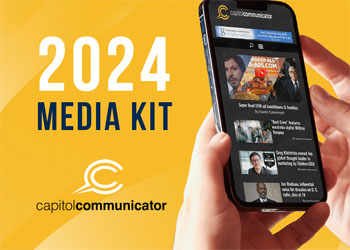Brands targeting U.S. consumers need to be more relevant and authentic with their social media content to transform their reputation, according to new research by Social@Ogilvy and SurveyMonkey.
An online survey of more than 5,500 social media users across 11 countries shows more and more consumers are noticing and actively engaging with brands via social media. Users in the U.S., however, are less likely to interact with a brand than those in emerging markets like China, Brazil and India.
At a time when companies grapple with the meaning and impact of social media on brands, the study examines the approaches to social media needed to engage more consumers and convert casual supporters into real, long-lasting advocates, who amplify brand voice and promote it to others.
“Sharers”, “followers” and retweets are crude measures of true brand advocacy.
Brands often boast about the number of “likes”, followers and tweets they garner, but are these measures of brand advocacy too crude? Are people that “like” and follow everything true brand promoters?
Three in four (75%) of those surveyed in the U.S. said that they that they “like” or follow a brand, product or service on social media – in line with other mature markets. However, the percentage is higher in emerging markets such as China (96%), Brazil (94%) and India (93%). There are various motivations for doing so including, wanting to hear about product offers and news, entertainment and interact direct interaction with an organization.
In the U.S., of those that have “liked” or followed a brand, 45% have interacted directly with a brand and 72% received a response back.
In the U.S., stated the report, “we saw no shortage of “social sharers” who not only follow a brand, but who proactively share their experiences – over half (55%) of respondents in the US have communicated either positive or negative opinions about a brand with others.
“These social addicts, who typically stay glued to the likes of Facebook, YouTube and Twitter on a daily basis, exhibit similar behaviors but there are still key differences and steps to transforming “sharers” into real brand promoters.”
While 55% of U.S. respondents are “sharers”, only 19% are true brand promoters.
Authentic brand promoters—respondents who self-identified as being extremely likely to recommend brands and products to friends—are far more rare and influential than sharers. The research reveals notable differences between the profile of a promoter and social sharer.
How do U.S. promoters interact via social media?
- They are intrinsically more active followers: around half (46%) follow brands on a regular basis, compared to only a third of sharers (32%)
- Promoters follow brands in order to interact directly with them: around a third (35%) of sharers do this compared to four in ten (43%) of promoters
Why do U.S. promoters interact with brands?
- A third (31%) also believe a brand’s reputation is important, compared to only 28% of sharers
- They prefer to link a brand to their own personal identify, with 31% saying they feel better about themselves after using a brand; only 26% of sharers say the same
What action do brands evoke?
- The friends of promoters in the U.S. talk about brands much more: 43% of promoters see their networks regularly mention brands and products, while only 33% of sharers do the same.
- Promoters are much more likely to respond to their friends’ interaction with brands; 35% would purchase a product if it was mentioned by a friend, compared to just 24% of sharers
In the U.S., these promoters share broadly similar characteristics.
True promoters in the U.S. have similar reasons for liking or following a brand – 84% want to hear about products, offers, or news. Others also want to give direct feedback (36%) and interact directly with an organization (24%). Promoters tend to surround themselves by like minds when it comes to their attitude towards brand interaction on social media: 84% say their friends’ mentions of brands are largely positive.
Quality is paramount, with over nine in ten American social media users saying this is why they would be extremely likely to recommend a brand or product to friends or colleagues. And, it’s the main reason why they would not recommend a brand or product.
But brands beware: While both sharers (84%) and promoters (66%) in the U.S. have posted about a great brand experience on social media, 71% of sharers and 47% of promoters have also discussed terrible brand experiences online.
What does this mean for brands?
Powerful conversations may fill the streets for revolution, but people are now moving towards more private and closed places of individual relevance.
While it is clear that people are more connected than ever – demonstrated by the sheer breadth of networks available to us – the research from SurveyMonkey and Ogilvy shows that it is the depth of connections that change our lives and the world around us.
Ultimately, brands need to build relevance and trust through content and connections if they wish use social media to transform their brand, business and reputation.
Five ways to build a brand’s relevance and trust in social media
- Moments of truth: Connect naturally with the right audience, in the right place at the right time
- Inspire: Use culturally relevant storytelling that flows across platforms and markets, in real-time
- Measure: Focus on harder business metrics, such as leads, sales, performance, loyalty
- Precision: Move from broad demographics to using behavior, interests and friendships.
- Bond: Move from community management to customer engagement
“Companies need to move beyond collecting likes and retweets with meaningless content,” said Thomas Crampton, global managing director, Social@Ogilvy. “Through genuine interaction and content designed to connect with true advocates, companies can drive forward their brand, business and reputation in ways not possible before this era of social media.”
“Social media addicts may look like your most engaged consumers, but marketers need to stop looking at their data in silos to find their true advocates,,” said Bennett Porter, SurveyMonkey’s VP/marketing communications. “By applying the Net Promoter Score® methodology to social media users across the globe, we better understand the profile of a brand promoters: those who are extremely likely to recommend brands to friends and colleagues. To appeal to promoters, brands need to not only focus on quality but also reputation among friends or colleagues and that sense of worth that comes from being associated with a brand.”

























0 Comments